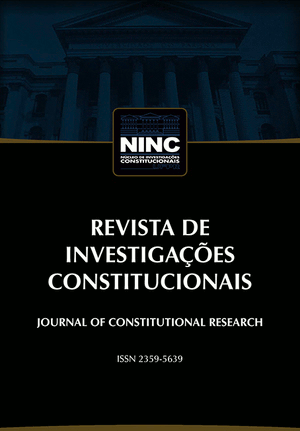Abstract
The Brazilian system of judicial review confers broad powers to the Federal Supreme Court regarding the definition of the meaning of the Constitution. As a reaction to this strong model of control, the National Congress has adopted as a reaction strategy the approval of constitutional amendments as a way of overriding judicial decisions that strike down legislation. The article aims to examine this phenomenon based on the theory of constitutional dialogues developed in Canadian law, using as theoretical framework the ideas of Peter Hogg and Allison Bushell, Kent Roach and Luc Tremblay, to verify if it is possible to consider this interaction between Legislative and Judiciary as an authentic constitutional dialogue. The method used was the bibliographical review, the case study, the analysis of jurisprudence and the manifestations of the parliamentarians in the National Congress. The study concludes that in all the five cases analyzed there was no effective dialogue, but rather an overlap of monologues among the actors involved, since the reasons of the Brazilian Federal Supreme Court in general are not taken into account by the National Congress.
Kaywords:
constitutional dialogues; judicial supremacy; judicial review; democracy; constitutional amendments
